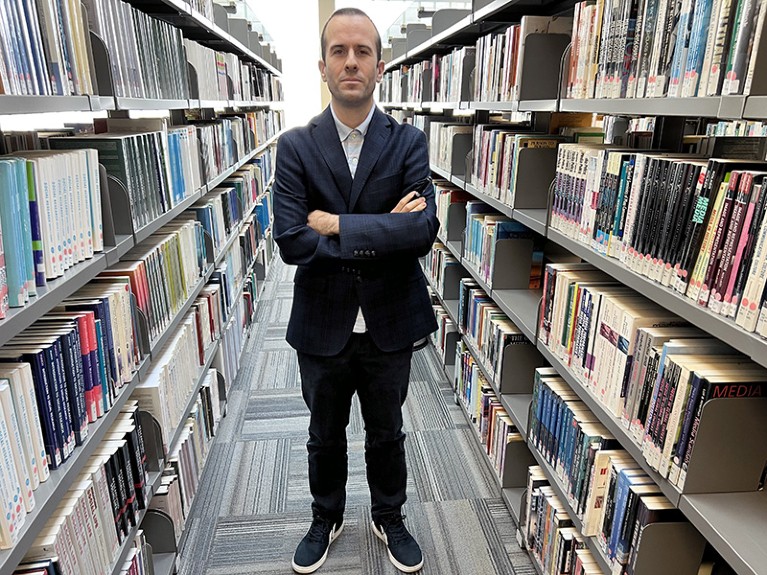Juan Manuel Parrilla questions how much value there is in aspects of the grant-application process.Credit: Juan Manuel Parrilla Gutierrez
I’ve always hated writing grants.
Like most scientists, I love having scientific ideas, and I love drawing diagrams and writing up my ideas. But grant applications require an enormous amount of work beyond conveying an idea for a research project. This takes a lot of time and effort.
For example, grant applications usually require you to make the standard case for support, in which you detail your proposed research. But as many researchers know, you might also need to submit a lay summary; a long abstract; your CV; impact statements; public-engagement plans; an explanation of how other staff members will be involved; a project-management plan; letters of support from colleagues; a case for how you will handle data; and the predicted timescale of the project. And don’t forget the risk analysis! Here’s the kicker: all this for a 90–95% chance of getting rejected.

How ChatGPT is transforming the postdoc experience
Despite having to do all of this preparation, the brutal truth is that once you start on the research, there is a good chance things won’t proceed as expected. It’s possible that few of the milestones will be met, and some of the projected outcomes might not be achieved. If experiments go wrong, you might not have time to do all of the public-engagement activities you added to the grant application. Nevertheless, when the project is finished, you might well have managed to produce great science, although this could easily differ from that outlined in your original proposal. And that’s OK.
Panel members tasked with deciding who gets a grant also find the process cumbersome. I’ve been on panels myself, and sometimes there just isn’t time to read everything. As a panel member, you are usually asked to focus on three main questions. Does this proposal fit the call brief? Is the proposed science good and novel? And are the candidates experts in the right field? The abstract and a small part of the research proposal answer the first two questions, and, when it comes to the third, I prefer to use Google to learn more about the candidates.
A flawed system
So why the need for applicants to write all those documents? In theory, the system has been designed to be thorough, robust and unbiased; it’s supposed to mean that funding bodies are presented with a serious case. In other words, chancers need not apply. Making the process challenging and cumbersome ensures that only those who are really interested will apply. But creating these lengthy, seemingly useless documents is taking up too much of scientists’ time.
Moreover, the artificial intelligence (AI) chatbot ChatGPT is now exposing flaws in the system.
A few months ago, I was discussing a grant proposal with a colleague. I told him that I didn’t have enough time to write the proposal I wanted to write. He suggested that I use ChatGPT, and told me that he uses AI to do the heavy lifting when it comes to writing some of the ‘dead documents’ that make up too much of grant applications.
A few weeks later, I was writing another grant proposal with some colleagues. Most of it was complete, but we still needed to format everything and write a few final sections. I decided to enlist ChatGPT’s help. The abstract was done, but I asked ChatGPT to write up the further details using the core ideas I had already written down. It did an amazing job. And the English was good, better than my own.
I also asked ChatGPT to write a paragraph explaining how our proposed research fitted the funder’s call. Again, the chatbot did a great job. I read through everything, changing a few parts where the use of ChatGPT was too obvious. It cut the workload from three days to three hours.
We submitted the grant on time. The next day, while speaking to a friend, I told him, “This week, I wrote my first ChatGPT grant.” He replied that he had been doing it for months and that many other scientists are doing the same. A 2023 Nature survey of 1,600 researchers found that more than 25% use AI to help them write manuscripts and that more than 15% use the technology to help them write grant proposals.
Some people might see the use of ChatGPT in writing grant proposals as cheating, but it actually highlights a much bigger problem: what is the point of asking scientists to write documents that can be easily created with AI? What value are we adding? Perhaps it is time for funding bodies to rethink their application processes.
This document was written without the use of AI.
